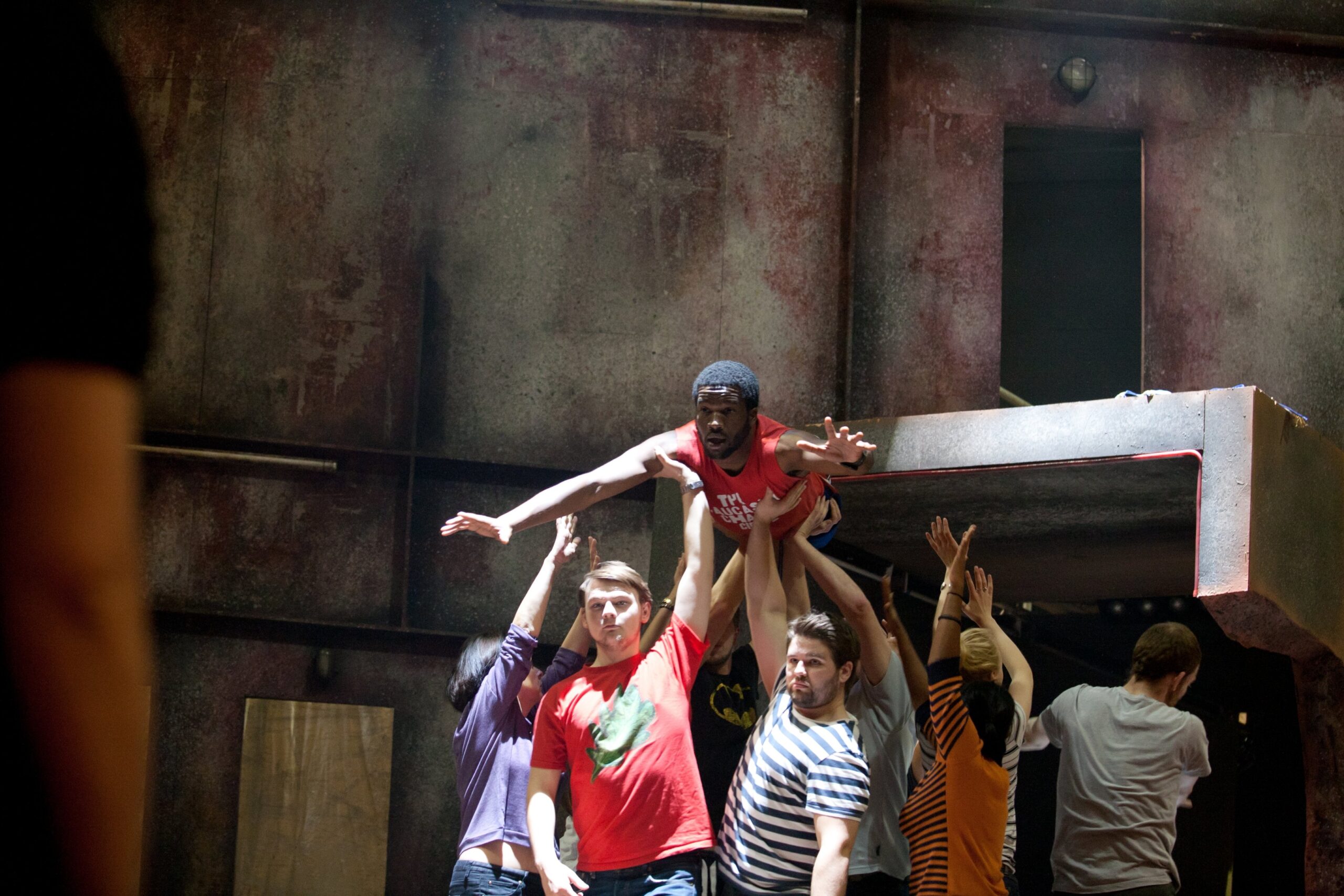
The amateur cast rehearse Pericles
Open Stages
Where would you see Juliet played by an English student and Romeo by a Polish cage fighter or ‘Much ado about nothing’ performed by serving sailors? In the Royal Shakespeare Company’s Open Stages initiative, says Ian Wainwright.
With Open Stages the Royal Shakespeare Company (RSC) set out to engage with those theatre-makers who make theatre in their spare time, unpaid and purely for the love of it, and by doing so reclaim and celebrate the often maligned name of amateur theatre. It also aimed to reforge the sometimes fraught relationship between professional and amateur theatre-makers. We sought to develop the idea that Shakespeare is, and has always been, the people’s playwright, and that theatre is a collaborative artform accessible to all.
With support from the Esmée Fairbairn Foundation, the RSC put out a call in February 2011 to amateur theatre companies across the UK to pitch to us their own production. Over 260 amateur theatre companies were successful, involving over 7,200 amateur performers, from the west coast of Scotland to the rocky cliffs of Cornwall. Participants included soldiers, mobile phone salesmen, librarians, psychiatric nurses, used car salesmen, estate agents, primary school teachers, bin men and a former armed robber. Each of the amateur companies worked with RSC practitioners at a succession of travelling ‘Skills exchanges’ workshops, focusing on voice, text, movement, directing, design, lighting and sound, with an emphasis on practical skills for use in their productions.
Since Summer 2011 the companies involved have been performing Shakespeare, or Shakespeare-inspired pieces of theatre, in their own venues across the UK with performances taking place everywhere from forests to castles, supermarkets to village halls, Royal Navy ships and even a swimming pool – playing to a combined audience of over 200,000 people.
Working in partnership with ten professional regional theatres including the National Theatre of Scotland, the Lyric Belfast, Contact in Manchester, the Sherman Theatre in Cardiff and Hall for Cornwall, the project brought together the Open Stages companies in each region to share and celebrate their work in ten regional showcases between May and June 2012.
Thirteen of these companies were invited to perform in Stratford upon Avon as part of the World Shakespeare Festival in July 2012, to mark the climax of the country's biggest ever celebration of amateur Shakespeare. Approximately 360 amateur theatre-makers performed on the RSC’s stages, working with technicians and stage managers, performing over five days to an audience of over 3,000 people.
After two years of telling amateur theatre-makers how to make better theatre with non-professionals, the RSC thought it should put its money where its mouth is, and in October it staged its first production in the Courtyard Theatre with a cast entirely of amateur actors. Pericles was directed, produced and supported by the professional practitioners and staff of the RSC, but its cast was 30 actors drawn from amateur companies across the Midlands.
We believe that we have succeeded in raising the profile of amateur theatre across the UK. Within the professional theatre sector we have begun to raise awareness of the scale and diversity of amateur work, as well as increasing the status of adult amateurs as legitimate theatre-making partners and collaborators. Within the amateur sector we have started to raise awareness of advances in professional practice and fostered an ambition to learn more. Most importantly, amateur and professionals have begun to build a sense of trust, understanding and mutual respect between these previously estranged sectors of theatre, becoming engaged in a conversation about making theatre, a conversation both are keen to continue.
As far as Shakespeare is concerned, the project once again proves that Shakespeare, and the art of theatre-making, belongs to everyone, not just to watch but to perform. It reminds us that Shakespeare is not simply the province of the Oxbridge-educated director, the GCSE or A level student or the trained professional actor. He continues to be the people’s playwright.
Join the Discussion
You must be logged in to post a comment.